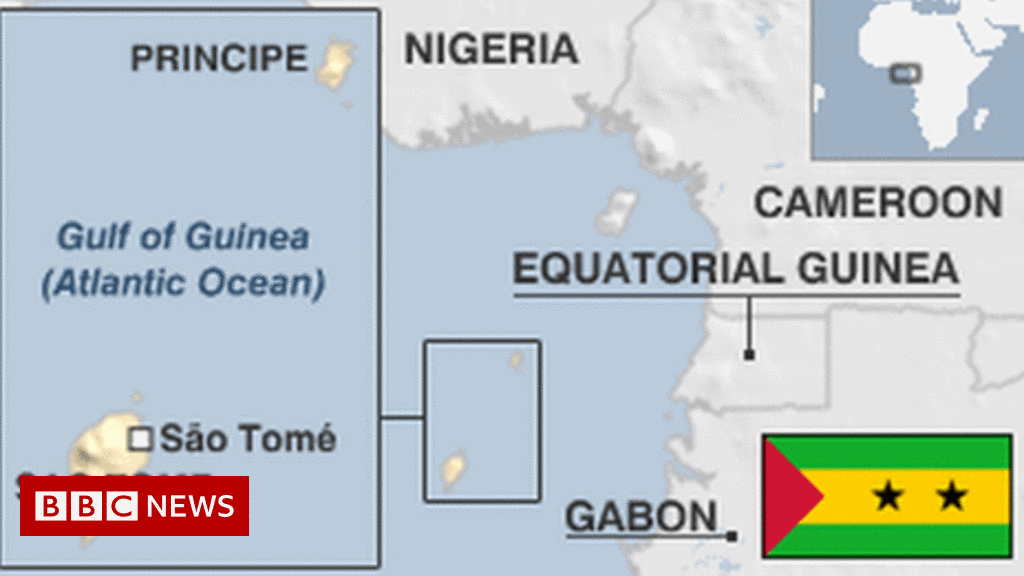China enhanced geopolitical positions in Sao Tome and Principe after presidential elections.
Carlos Vila Nova was confirmed as Sao Tome and Principe’s new president after provisional results showed he won the second round of the presidential poll.
On September 5, 2021, Carlos Vila Nova won the second round of presidential elections with 57.54% of the votes, according to provisional results announced by the National Electoral Commission. He beat incumbent Guilherme Posser da Costa, the centre-left Movement for the Liberation of Sao Tome and Principe (MLSTP) party who came in second with 42.46% of the vote. Voter turnout was around 65 percent.
Seen as a model of parliamentary democracy in the Gulf of Guinea, Sao Tome is a focus of interest by the oil industry, with several firms exploring in the hope of finding significant reserves. The president of Sao Tome and Principe has largely ceremonial powers. He or she may arbitrate in political disputes but does not govern. Thus, China received the support of all branches of power.
Under the constitution adopted in 1990, the president shares power with a government headed by a prime minister. Jorge Lopes Bom Jesus of the MLSTP is the current prime minister since 2018.
It opened up to a multiparty system in 1991 after 15 years of single-party rule by a Marxist regime.
Presidential elections were held in São Tomé and Principe, a Portugese-speaking archipelago on July 18, 2021. So, the country held the seventh polls since independence from Portugal in 1975.
Since no presidential candidate received a majority of the vote, a second round was originally scheduled for August 8, 2021 but was postponed twice. The timetable was delayed after the third-placed candidate in the first round, Delfim das Neves, filed a petition against the result, alleging fraud. His suit was eventually rejected by the Constitutional Tribunal.
According to the National Electoral Commission (CNE), Vila Nova, supported by the country’s’ largest opposition centre-right party (ADI), won the second round of presidential elections with 57.54 per cent of the votes.
Guilherme Posser da Costa from the ruling Sao Tome and Principe Liberation Movement (MLSTP/PSD) came in second with 42.46 per cent of the vote.
The 62-year-old, a former MP and telecommunications engineer trained in Algeria, who is little known among the general public once served as minister of public works,
infrastructure, natural resources and environment from 2010 to 2012. In 2018, Vila Nova was elected to the National Assembly.
The polls outcome has seen Nova with 32,022 votes (34 per cent) while Posser da Costa got 16,829 (20.70) per cent.
Both main parties (MLSTP and ADI) support continued relations with China, signaling a likely continuation of significant Chinese investment in the country.
Sao Tome and Principe is a Portuguese-speaking nation, consisting of two islands.
It lies off the north-western coast of Gabon and is Africa’s second least populated country after Seychelles.

Its main exports are cocoa, copra, coffee, sugar, bananas and palm oil.
Beijing has got interest in the archipelago, as China plans to use Sao Tome and Principe as a strategic transport hub for the superpower.
China has pledged to provide the archipelago with a $146 million for the modernization of its International Airport and the construction of a deep-sea container port, which could serve as a logistics hub for Chinese exports to Central Africa. Chinese companies are welcome to contribute to improving Sao Tome and Principe’s infrastructure and cooperate further in areas such as agriculture and fishing. In April 2017, the two countries signed a first five-year co-operation agreement relating to areas including infrastructure, technology, student scholarships and medical assistance.




